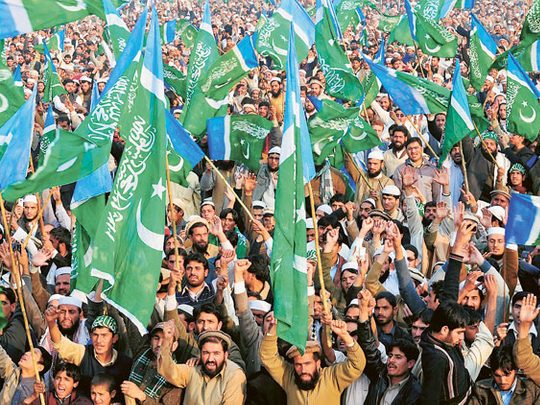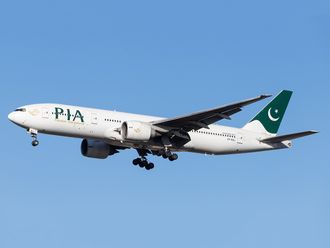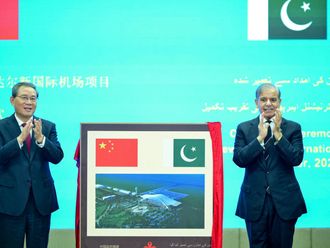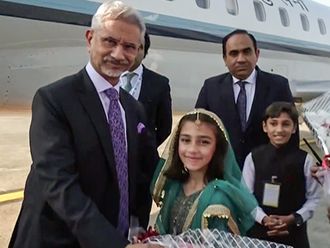
Lahore: About 30,000 Islamists staged a protest yesterday to condemn the United States and show support for Pakistan's military, which has reasserted itself after a cross-border Nato attack and a controversial memo that has weakened the civilian government.
Speakers included Hafiz Saeed, a fiercely anti-American cleric suspected of links to the group blamed for the 2008 militant rampage in the Indian city of Mumbai that killed 166 people.
Also at the podium was Maulana Sami-ul-Haq, known as the father of the Afghan Taliban, who are fighting US-led Nato forces across the border in Afghanistan.
Pakistan's military was humiliated by the unilateral US special forces raid that killed Osama Bin Laden in a Pakistani town in May, facing unprecedented public criticism.
But many Pakistanis rallied behind it after a November 26 cross-border Nato air raid killed 24 Pakistani soldiers, and plunged already troubled ties with Washington to a low point.
The Islamists' show of support for the military will bring more pressure on Pakistan's civilian leaders, especially deeply unpopular President Asif Ali Zardari, who could be damaged by a memo, allegedly crafted by the former US ambassador to the United States, accusing the military of plotting a coup.
"All Islamist organisations stand with the Pakistan army. We will stand together and defeat any conspiracies against Pakistan and the Pakistan army," said cleric Tahir Ashrafi, in an apparent reference to what has become known as "memogate".
"Long live the Pakistan army," chanted the Islamists in the central city of Lahore.
Businessman Mansour Ejaz, writing in a column in the Financial Times on October 10, said a senior Pakistani diplomat had asked that a memo be delivered to the Pentagon with a plea for US help to stave off a military coup in the days after the Bin Laden raid.
Ejaz later identified the diplomat as Hussain Haqqani, the then Pakistani ambassador to Washington, who denied involvement in the memo but resigned over the controversy.
No evidence has emerged that the military was plotting a coup and the Pentagon at the time dismissed the memo as not credible.
Army chief General Ashfaq Kiyani has called for an investigation into the memo. Today, Pakistan's Supreme Court is due to start hearings into a petition demanding an inquiry into who was behind it.
Tension between Pakistan's civilian government and military have bedevilled the nuclear-armed South Asian country for almost its entire existence, with the military ruling the country for more than half of its 64-year history after a series of coups.
Haqqani's resignation was seen by many analysts as further weakening the civilian government, which is already beset by allegations of corruption and incompetence.
The military, which determines security and foreign policy, dismisses any suggestion that it might stage a coup but analysts say military intervention could not be ruled out in the event of chaos.












